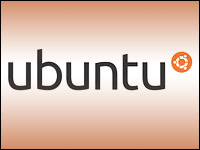
IBM plans to launch an initiative that centers on a Linux-based platform and a Web-based marketplace tailored for small and medium-sized businesses.
Set for later this year, the rollout will provide users with a range of products and services from independent software vendors. It will also allow them to tap into IBM’s computing horsepower.
Dissecting the Offering
Code-named “Blue Business Platform,” the offering consists of a catalog, of sorts, that will allow users to view IBM’s ever-growing partner ecosystem in one locale.
Blue Business includes a Web platform for running a company’s software — whether hosted or on-premise. The offering’s linchpin is the server: Lotus Foundations Start, the first in a family of IBM servers for small businesses planned for general availability in the second quarter.
Lotus Foundations Start includes e-mail, security, backup and recovery features.
“IBM has a great deal of expertise in Linux, as well as great software assets in the Lotus product set,” Charles King, principal with Pund-IT, told LinuxInsider. “What IBM did with this offering is leverage its expertise in the product set specifically for the SMB market.”
With this integrated combo, he added, “IBM has hit one out of the park.”
Bigger SMB Push
Blue Business Platform represents a larger push by IBM to help its partner ISVs better penetrate the SMB space, Mike Prochaska, a product director for the Blue Business Platform initiative, told LinuxInsider.
In fact, that is why IBM unveiled the soon-to-be introduced initiative at the Business Partner Leadership Conference last week, he added.
“The market will be seeing a lot of activity around our ISVs, and we will be using this model with them,” Prochaska said, referring to other IBM offerings going forward.
More Than a Catalogue
IBM is getting ready to recruit partners for the Global Application Marketplace, which will be central to the initiative. By the time it’s ready for launch, IBM expects to have compiled ISV business applications, services and peer ratings for their offerings. It will also offer access to an online business solutions advisor from the IBM system.
The marketplace will be more than just a catalog, Prochaska commented. A company could conceivably get help in selecting a customer relationship management application, for example, that fits specific user requirements.
The Web component extends a lot further than just showing the various solutions, he added. “The customer is always connected back into Web presence once he buys something from it.”
Integration Points
That connectivity is significant on a number of levels, starting with the user’s ability to integrate easily into other applications in the marketplace, Prochaska said. “A company would not have to rewrite an application because the framework will provide integration points.”
The Web presence also provides a certain level of self-healing functionality to the end-users’ IT operations.
These various elements add up to a holistic approach to SMB computing that is different from what IBM has offered in the past, Prochaska maintained.
“We are tying together on-premise software to cloud computing — integrating that with middleware and related services such as consulting,” he said.
IBM will also be offering an Application Integration Toolkit consisting of a set of open standard interfaces as part of its Blue Business Platform.
Not a Wintel Solution
The hardware is the component that most intrigues King, although he also likes the one-stop-shop approach IBM is taking.
“It is an interesting box — an X86-based tower server,” he noted. “It includes a suite of Lotus applications that basically are a plug-and-play operation.” That is, it can perform just about any task from backup to productivity.
“It has an interesting ‘ET Call Home’ style support as well,” King added.
“It is different from the typical Wintel (Windows on Intel) products that dominate this space.”





















































